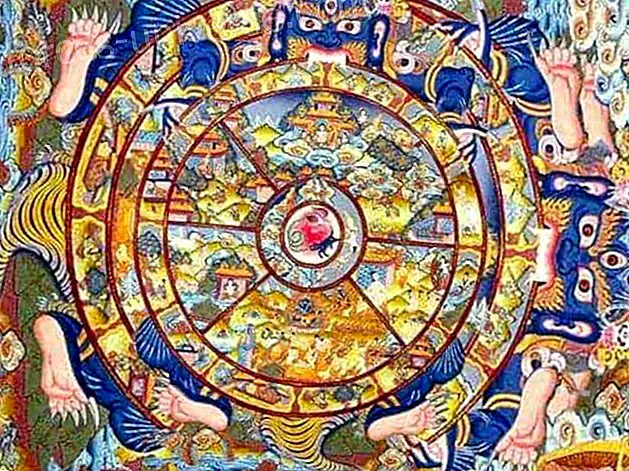
These three aspects are considered as poisons or obstacles of meditative practice in the East and West.
Although if we observe them well, they are also mental factors that in our daily occurrence are not edifying, negative karma can be generated if we do not notice their presence in both daily life and meditation.
What is malice? ...
In the case of malice, when it is presented in the field of meditation it consists in having thoughts of competence or greed in everything we experience. We can notice it when we try to concentrate and thoughts like "I am the best meditator" appear in our minds, "I have high achievements" ... "No one meditates like me" ... so we find countless examples that cause us to divert our attention to something that will not give us anything constructive.
If it is not easy for us to see it in meditation, in daily life we can notice it, when we disagree with everything around us, we do not like anything or when we label everything as bad, unpleasant or of little thing.
What is sensual desire?
Sensual desire refers to giving in to all the stimuli that surround us with attachment or aversion that are already to start extreme reactions. In meditation we can observe them at the moment when we try to concentrate and we can not think of anything other than tasting a delicious chocolate dessert, our favorite song appears in our mind or we can not stop imagining our person more dear ... this aspect distracts us and of course it does not allow us to enter a state of deep meditation if we respond by engaging in everything that happens in our mind.

Finally, and no less important, the afflictive doubt is in charge of weakening our motivation on the spiritual path, it happens when in practice we doubt the true effects of our effort, when deep down we do not believe in its liberating aspect of suffering, we can also experience a sense of failure without even having traveled the path and having spent enough time.
These obstacles are more common than we can imagine, the difference is that great meditators are not disturbed by these thoughts and flow in the still state of mind, like a calm sea.
not identify with our thoughts ...
The above does not mean that we should not have thoughts, in fact it is that we must free them not identify ourselves, we observe them, we realize their presence and continue the practice.

At first it is difficult but like everything on the path we must practice until the mind yields, understanding that it has taken us many years to have an untamed mind and that it will inevitably resist in the first months of attempts .
stabilize our mind ..
The great news is that they are workable and when we manage to stabilize the mind we notice their presence, we let them pass without complications, we see them as something that happens and that's it.
In our daily life it is reflected in the moment when we no longer get hooked with everything that is around us, they appear in the space of our mind, we observe them and let them pass, it is said to be observing how thought is born or appears, dwells and finally disappears .

The activity of seeing thoughts and letting them pass is known as the self - liberation activity that is common in the practice of Dzochen for advanced meditators.
attend to ethical behavior ...
Another recommendation is to detect in our daily performance the presence of these poisons, we will be surprised to observe what is present in all our daily activity, in this case the recommendation is to use the first stage of the triple Shila training that refers to ethical behavior to understand that we must reinforce edifying activities and eradicate what is not constructive.
Reflecting on the cause and effect is useful to be careful with our action of mind, word and body. If we know that what is not constructive will come back to us in the same way, and evaluate how it has happened in our lives, we will understand how valuable it is to be prudent in our actions.

Another thought that helps to counteract these obstacles is to reflect on death, in its imminent character, since no one until this moment is exempt from this process. To think that at some point we will leave our loved ones, social and economic position, should foster the spirit of renunciation that refers to dedicating our time to what will really be useful to us in this life or the following for those who believe in the Renaissance.
thoughts that are born, dwell and fade ...
As always, the recommendation is to remain attentive to our mind so that at the moment when these thoughts arise we are able to observe them, let them dwell and release them. This applies to meditation and to our daily life, the result is inner peace and a lucid, flexible and attentive mind . So is.
AUTHOR: Pilar Vázquez, collaborator of the great family of the White Brotherhood






